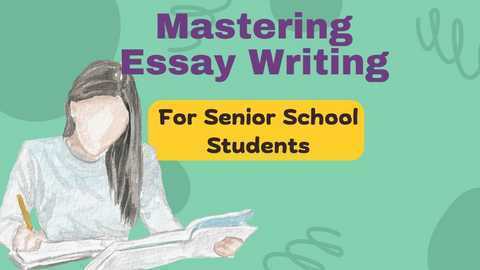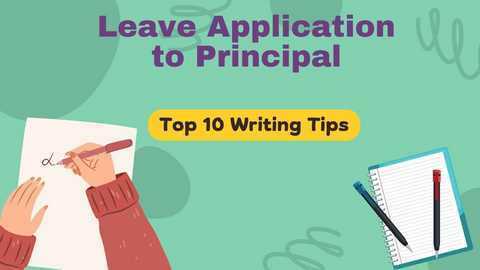Book review is an essential activity in the world of literature.
They not only help readers decide if a book is worth their time but also provide valuable feedback to authors.
If you are someone who loves reading and wants to share your thoughts about a book with the world, writing a book review can be an effective way to do so.
In this article, we will discuss 10 practical tips with examples that can help you write a book review effectively.
How to Write a Book Review Effectively | 10 Practical Tips With Examples

Tip #1: Begin with a Hook
The first step in writing an effective book review is to grab the reader’s attention with a hook.
Your opening sentence should be engaging and intriguing enough to make the reader want to read on.
For example, consider the following opening sentence for a review of Margaret Atwood’s The Handmaid’s Tale:
“Welcome to Gilead, a dystopian world where women are stripped of their rights, their identities, and their bodies.”
This opening sentence is powerful because it sets the tone for the entire review and gives the reader a glimpse into the book’s world.
Tip #2: Provide a Brief Summary of the Plot during the Book Review
The next step is to provide a brief summary of the plot without giving away too much.
Your goal is to give the reader a general idea of what the book is about and what they can expect.
For example, consider the following summary of George Orwell’s 1984:
“In a totalitarian society, Winston Smith struggles to maintain his individuality and sanity in a world where the government controls every aspect of citizens’ lives. As he begins to rebel against the regime, he discovers the true nature of the world he lives in.”
This summary is effective because it gives the reader a basic understanding of what the book is about without spoiling the plot.
Tip #3: Analyze the Theme for an Effective Book Review
Once you have provided a summary of the plot, it’s time to analyze the book’s themes.
What message is the author trying to convey?
What ideas are explored in the book?
This is where you can dig deeper into the book’s meaning and provide your own insights.
For example, consider the following analysis of Harper Lee’s To Kill a Mockingbird:
“To Kill a Mockingbird is a powerful story about racial injustice and the importance of empathy. Through the eyes of young Scout Finch, we see how the prejudices of society affect individuals and how one man’s courage can make a difference. Lee’s themes of racial equality and the destructive nature of prejudice are still relevant today.”
This analysis is effective because it goes beyond a simple summary of the plot and delves into the book’s underlying themes and messages.
Tip #4: Critique the Book’s Writing Style
In addition to analyzing the book’s themes, it’s important to critique the book’s writing style.
How is the book written?
Is the language effective?
Is the pacing of the story well done?
These are all important elements to consider when critiquing the writing style.
For example, consider the following critique of J.D. Salinger’s The Catcher in the Rye:
“Salinger’s writing style is unique and effective in capturing the voice of a troubled adolescent. The use of colloquial language and fragmented sentences adds to the authenticity of Holden’s character. However, at times the story feels meandering and disjointed, which can make it a challenging read.”
This critique is effective because it acknowledges the strengths of Salinger’s writing style while also addressing its weaknesses.
Tip #5: Consider the Book’s Historical and Cultural Context in Your Review
Another important element to consider when writing a book review is the historical and cultural context in which the book was written.
This can help readers understand the book’s significance and impact.
For example, consider the following review of Toni Morrison’s Beloved:
“Beloved is a haunting novel that explores the horrors of slavery and their lasting impact on African American communities. Morrison’s poetic prose and vivid imagery bring to life the experiences of the book’s characters. The book’s historical and cultural significance cannot be overstated, as it sheds light on a painful period in American history that continues to shape our society today.“
This review is effective because it acknowledges the historical and cultural context of the book and explains its importance.
Tip #6: Provide Comparisons to Other Books or Authors
Another way to make your book review more engaging is to provide comparisons to other books or authors.
This can help readers understand the book’s style, themes, and unique qualities.
For example, consider the following review of Sally Rooney’s Normal People:
“Normal People is a deeply moving and intimate novel that explores the complexities of love and relationships. Rooney’s spare prose and unflinching realism remind me of the works of Raymond Carver, while her insightful observations about modern society are reminiscent of Joan Didion. This is a book that will stay with you long after you’ve turned the last page.”
This review is effective because it compares the book to other notable authors and explains what makes it unique.
Tip #7: Use Personal Anecdotes or Examples to Illustrate Your Points
Using personal anecdotes or examples can help illustrate your points and make your book review more relatable to readers.
For example, consider the following review of J.K. Rowling’s Harry Potter and the Philosopher’s Stone:
“Harry Potter and the Philosopher’s Stone is a book that has a special place in my heart. I remember reading it for the first time as a child and being completely entranced by the magical world that Rowling had created. The characters are so well-drawn and relatable, and the plot is full of twists and turns that keep you on the edge of your seat. Even as an adult, I find myself returning to this book time and time again.”
This review is effective because it uses a personal anecdote to illustrate the reviewer’s connection to the book and why it is so beloved.
Tip #8: Evaluate the Book’s Structure and Organization
Another important aspect of a book review is evaluating the book’s structure and organization.
This can help readers understand how the author has chosen to tell their story and how effective their choices are.
For example, consider the following review of Celeste Ng’s Little Fires Everywhere:
“Little Fires Everywhere is a masterfully crafted novel that weaves together multiple storylines and themes with incredible skill. Ng’s decision to structure the book as a series of interconnected vignettes allows her to explore the complex relationships between the book’s characters in a way that is both intimate and revealing. The result is a book that is both thought-provoking and deeply satisfying.”
This review is effective because it acknowledges the book’s structure and explains how it contributes to the overall effectiveness of the story.
Tip #9: Consider the Book’s Audience and Purpose While Review
When writing a book review, it’s important to consider the book’s intended audience and purpose.
This can help you evaluate the book’s effectiveness in achieving its goals and can also help you recommend it to the appropriate readers.
For example, consider the following review of Stephen Hawking’s A Brief History of Time:
“A Brief History of Time is a fascinating exploration of the universe and our place within it. While the book is undoubtedly complex and technical, Hawking’s clear and concise writing style makes it accessible to anyone with an interest in physics and astronomy. Whether you’re a seasoned scholar or simply a curious reader, this book is sure to broaden your understanding of the world around us.”
This review is effective because it acknowledges the book’s technical subject matter and explains how it can still be accessible to a broad audience.
Tip #10: Provide a Conclusion in Your Book Review
Finally, it’s important to provide a conclusion to your book review.
This is where you can summarize your thoughts and provide your overall opinion of the book.
For example, consider the following conclusion for a review of Gabriel Garcia Marquez’s One Hundred Years of Solitude:
“One Hundred Years of Solitude is a masterpiece of magical realism. Marquez’s vivid descriptions and intricate storytelling create a world that is both surreal and familiar. While the book can be challenging to follow at times, its themes of family, love, and the passage of time make it a must-read for anyone interested in literature.”
This conclusion is effective because it sums up the reviewer’s overall thoughts on the book and gives a final recommendation to readers.
Conclusion
In conclusion, writing an effective book review requires careful consideration of several key elements.
By following the above practical tips you can create a review that is engaging and informative.
Remember, the purpose of reviewing a book is to help readers decide if a book is worth their time and to provide valuable feedback to authors.
With these best tips, you can write a book review that achieves both of these goals.
Happy reading and happy reviewing!




